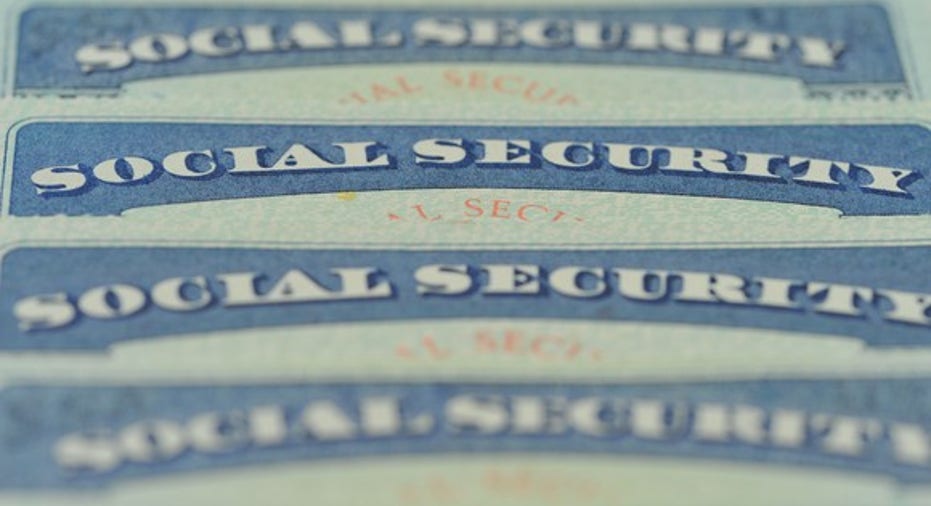8 Social Security Rules You Need to Know

Calculating your Social Security benefits can get...complicated. It's not just a matter of looking at the number on your Social Security statement and figuring that's how much you'll get. A number of different rules will have an impact on determining your final, actual benefit check, so it's important to understand these rules and how they may affect your benefits.
Rule #1: Your base benefits are determined by your 35 highest-income years
When calculating your benefits, the Social Security Administration only looks at your 35 highest-income years. If you worked more than 35 years, the rest of your work history (and the money you paid into Social Security) simply doesn't count toward your benefits calculation.
Image source: Getty images.
Rule #2: Social Security retirement benefits come in three flavors
Setting aside disability benefits, there are three kinds of Social Security benefits paid out during retirement: basic retirement benefits, spousal benefits, and survivor benefits. Retirement benefits are based on your earnings; spousal benefits are based on your spouse's or ex-spouse's earnings; and survivor benefits are based on your deceased spouse's earnings. Spousal benefits can be up to one-half of your spouse's full retirement benefits, while survivor benefits can be up to your deceased spouse's full retirement benefits.
Rule #3: You can't get both spousal and retirement benefits
If you are eligible for spousal benefits and standard retirement benefits based on your own earnings, you can't get both types of benefits -- you can only claim one. If your spouse earned significantly more than you did, this could result in your never actually getting your own retirement benefits.
Rule #4: Taking benefits early will cost you forever
If you start taking your Social Security benefits before "full retirement age" (which is typically either age 66 or 67, depending on your birth date), then your monthly benefit amount will be permanently reduced. Start taking benefits at age 62, the earliest possible start date, and your benefits will be reduced by as much as 30% for the rest of your life.
Rule #5: Claiming your benefits late results in larger monthly checks
If you wait until after full retirement age to claim your Social Security benefits, your monthly benefit check will increase by 8% for every year you wait. However, these credits stop accruing once you hit age 70 -- meaning that it doesn't make sense to wait longer than that to claim your benefits.
Rule #6: Working while receiving Social Security benefits may reduce your benefit checks
If you earn more than $16,920 per year (in 2017) while also receiving Social Security benefits and are under full retirement age, your benefits will be reduced by one dollar for every two dollars that you earn above this base amount. Once you're above full retirement age, your earnings will no longer limit your benefits. What's more, the Social Security Administration will credit you for the benefits you didn't receive in previous years due to earning extra money, and will add that amount to your future benefits.
Rule #7: Social Security benefits are capped
For 2017, if you claim your Social Security benefits at full retirement age, the most you can get is $2,687 per month. You'll get the maximum if your Average Indexed Monthly Earnings during your 35 highest income years was at least $8,843 (indexed means that your earnings are weighted to account for inflation). If you wait until age 70 to claim your Social Security benefits, then the most you can get in 2017 is $3,538 a month. The average Social Security benefit for 2017 is $1,360 per month.
Rule #8: Your Social Security benefits may be taxed
If one half of your Social Security benefit plus your other taxable income for the year plus nontaxable interest is equal to or greater than $32,000 (for married filing jointly) or $25,000 (for unmarried taxpayers) then your Social Security benefits will be partially taxable. Just how much of your Social Security benefits will be taxed depends on how much taxable income you have for the year. Nontaxable income, such as distributions from a Roth account, doesn't count toward this threshold.
Putting it all together
It's best to get familiar with the Social Security rules well before you're ready to retire. If you wait until you want to start claiming benefits, you may miss some important opportunities to bump up your benefits. Still, it's better to learn these rules late than to never learn them at all.
The $16,122 Social Security bonus most retirees completely overlook If you're like most Americans, you're a few years (or more) behind on your retirement savings. But a handful of little-known "Social Security secrets" could help ensure a boost in your retirement income. For example: one easy trick could pay you as much as $16,122 more... each year! Once you learn how to maximize your Social Security benefits, we think you could retire confidently with the peace of mind we're all after.Simply click here to discover how to learn more about these strategies.
The Motley Fool has a disclosure policy.



















